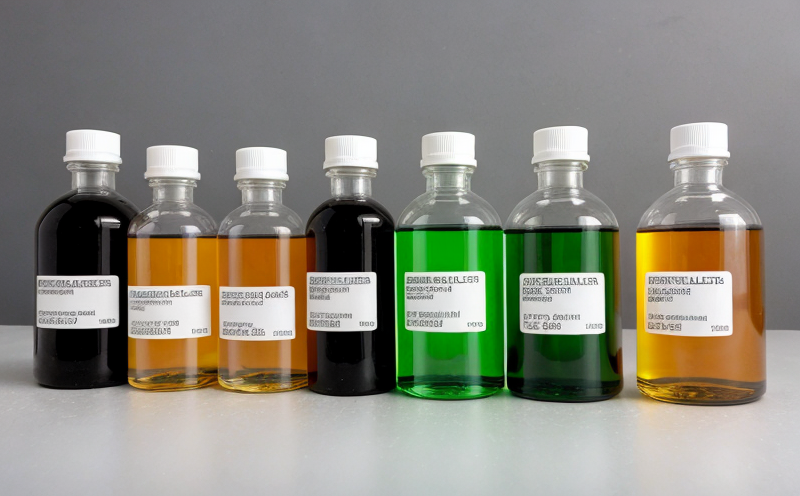Leachables Testing in Nebulizer Device Materials
Leachables testing is a critical component of ensuring the safety and efficacy of medical devices, especially those that come into contact with patients. In the case of nebulizers, leachable compounds can potentially transfer from device materials to medication or respiratory fluids during use, posing risks to patient health. This service focuses on the rigorous analysis of these leachables in various nebulizer device materials.
The primary goal is to identify and quantify potential contaminants that could impact patient safety. Leaching processes are complex, involving solvents such as water or physiological saline solutions used during inhalation therapy. The testing process involves extracting these compounds from the material using standardized methods before analyzing them in a laboratory setting.
Our expertise lies in adhering to international standards like ISO 10993-12, which provides guidance on biocompatibility assessment for medical devices. Compliance with such standards ensures that our results are reliable and can be used confidently by regulatory bodies worldwide.
The testing procedure begins with careful selection of the appropriate extraction solvent(s), followed by incubation times designed to simulate real-world usage conditions. Afterward, we analyze the extracted solutions using advanced analytical techniques including high-performance liquid chromatography (HPLC), mass spectrometry (MS), and inductively coupled plasma mass spectrometry (ICP-MS).
Our team carefully prepares each sample according to stringent protocols outlined by regulatory guidelines. This preparation includes precise dissolution of the material, filtration of extracted compounds, and stabilization procedures necessary for accurate analysis.
The analytical methods we employ are selected based on their ability to detect trace amounts of leachable substances down to parts per billion levels. By doing so, even minute quantities that might otherwise go undetected can be identified and reported accurately.
Once all samples have been analyzed, our experienced scientists interpret the data and prepare comprehensive reports detailing both quantified concentrations and potential risks associated with each identified compound. These insights are invaluable for manufacturers seeking to improve product safety while maintaining efficacy.
Why It Matters
Ensuring the safety of medical devices is paramount, especially when these devices interact directly with human tissues or bodily fluids. Leachables testing plays a crucial role in safeguarding patients from unintended exposure to harmful substances.
- Regulatory Compliance: Adhering to stringent regulatory requirements like those specified by the FDA and EU directives ensures that products meet international standards for safety and quality.
- Patient Safety: By identifying potentially hazardous materials early in the development process, manufacturers can address issues before they become a public health concern.
- Risk Reduction: Early detection allows for modifications to device design or manufacturing processes where necessary, thereby minimizing risks associated with leachable compounds.
Benefits
Implementing robust leachables testing offers numerous advantages for medical device manufacturers:
- Enhanced Product Quality: Continuous monitoring helps maintain consistent product quality across batches, ensuring that each unit meets established safety standards.
- Improved Reputation: Demonstrating a commitment to patient safety enhances brand reputation and fosters trust among healthcare providers and consumers alike.
- Avoidance of Recall Costs: Identifying problematic materials early prevents costly recalls later on, saving time and money while protecting public health.
Customer Impact and Satisfaction
Our clients benefit significantly from our leachables testing services:
- Confidence in Compliance: With comprehensive reports aligned with international standards, customers can be assured they are meeting all necessary regulatory requirements.
- Enhanced Reputation: By demonstrating a proactive approach to safety and quality assurance, companies improve their standing within the industry.
- Increased Sales: Demonstrating commitment to patient safety often translates into increased market share as consumers prefer brands associated with high standards of care.





